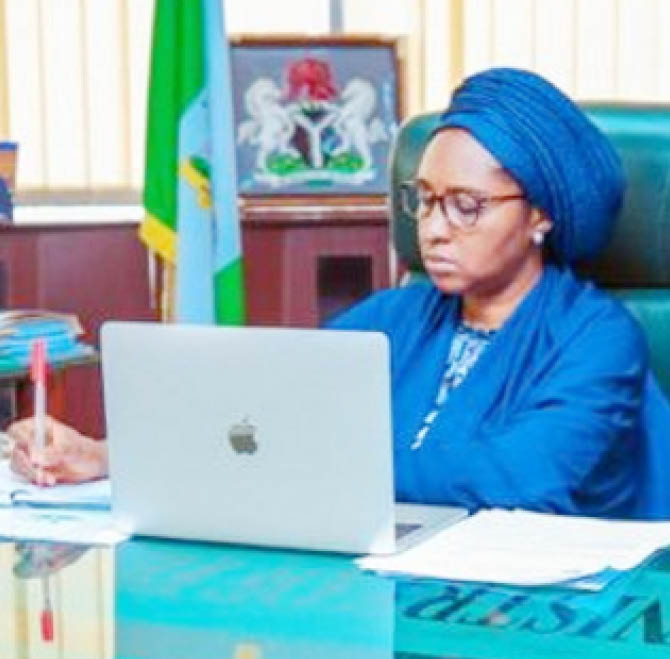Finance bill: FG adds 0.5% fee to duty for goods imported outside Africa
The federal government in the 2022 Finance Bill will add a 0.5 per cent fee to import duty for all goods imported outside Africa and will use the proceeds to fund capital contributions, subscriptions and other financial obligations to multilateral finance agencies. The government will also tax all revenues from cryptocurrency and digital assets as […]

Minister of Finance, Budget and National Planning, Zainab Ahmed
The federal government in the 2022 Finance Bill will add a 0.5 per cent fee to import duty for all goods imported outside Africa and will use the proceeds to fund capital contributions, subscriptions and other financial obligations to multilateral finance agencies.
The government will also tax all revenues from cryptocurrency and digital assets as well revenues from lottery operations and prizes.
According to excerpts of the bill: “In addition to extant customs duties and other approved charges, a levy of 0.5% is hereby imposed on all eligible goods imported into Nigeria from outside Africa to finance capital contributions, subscriptions and other financial obligations to the African Union, African Development Bank…”
On the taxation of cryptocurrency and other digital assets, it said: “By doing so, Nigeria joins the league of jurisdictions currently taxing digital assets, including the United Kingdom, United States of America, Australia, India, Kenya and South Africa.”
FG: 2nd Niger Bridge will be delivered before May 2023
For the taxing of lottery revenues, the bill stated that it was omitted in the Finance Act 2021 and is being restored in the new Act. “The income of all companies engaged in gaming and lottery business shall be taxable for all companies registered in Nigeria.”
The new bill also expanded excise duty from telecommunication services to ‘all services’, which will now be charged with duties of excise.
To promote reduction in flaring, the bill provides incentives. Medium and large companies utilising associated and non-associated gas shall benefit from a 50% investment tax credit on their qualifying investment to reduce the flaring.
The new bill also ensures that local governments are allocated a 35% share of Electronic Money Transfer Levy receipts (stamp duty, etc). States will get 50% while the federal government and FCT share 15%.
The provisions of the Finance Act, 2022 may take effect from 1st January 2022, if it is passed by the National Assembly and assented by President Muhammadu Buhari before this year ends.
Meanwhile, a development expert and Executive Director at the Centre for Fiscal Transparency and Integrity Watch (CeFTIW), Umar Yakubu, has backed the bill, saying its implementation is crucial to economic growth.
He said, “It is interesting that the new bill has tax equity and other issues geared towards addressing climate change and revenue increase.
“However, the implementation is very important. How the government will implement this bill if it eventually becomes an act to bridge the gap between the rich and the poor is what we are after. Also, the government should ensure that the implementation addresses the issue of job creation and unemployment,” Umar said.
Yakubu added that the part of the bill introducing taxation for digital currencies will be “Interesting to see as the federal government till date have not fully approved the operations of digital currency operations.”
By Simon Echewofun Sunday & Philip S. Clement
